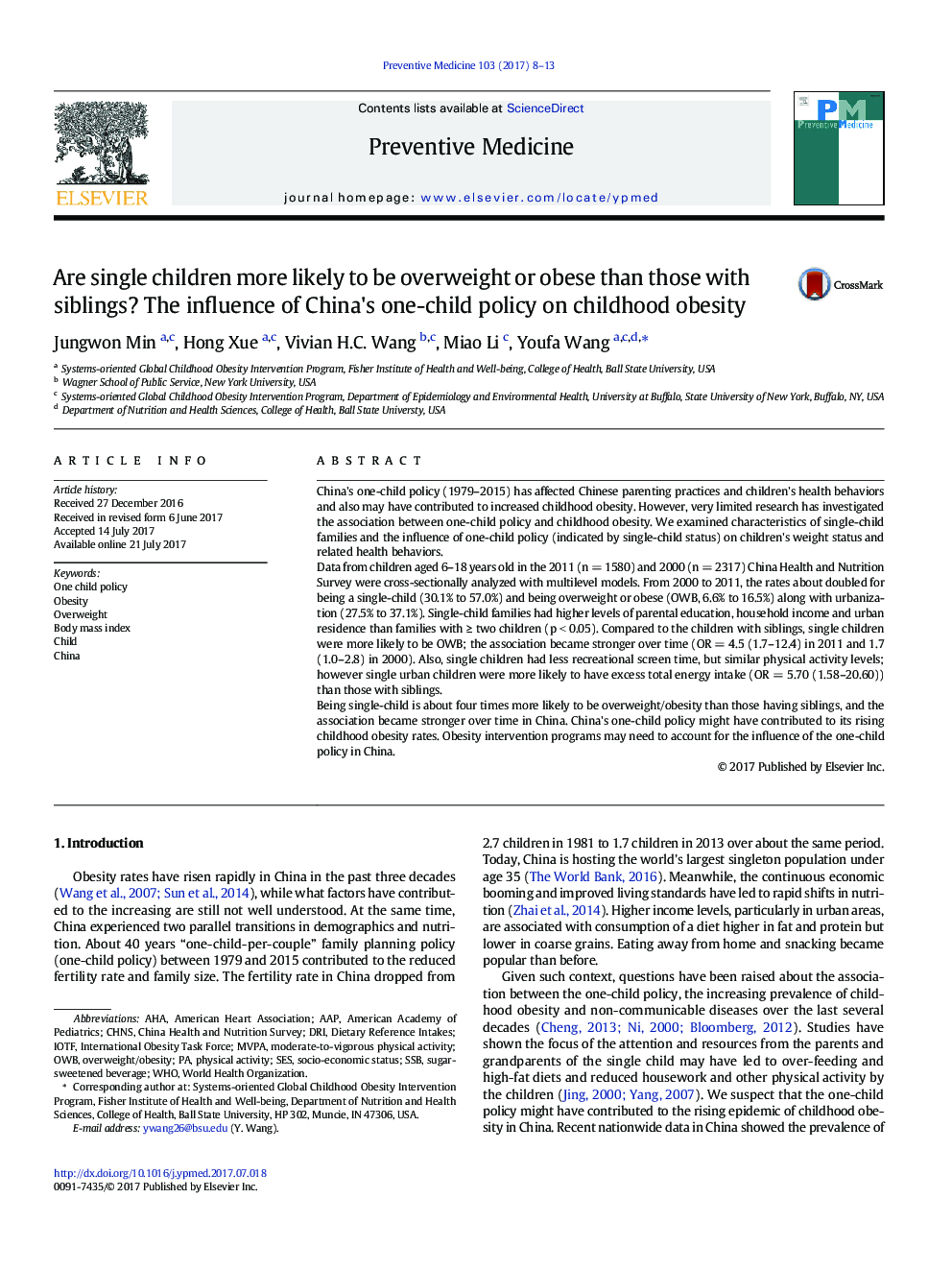| کد مقاله | کد نشریه | سال انتشار | مقاله انگلیسی | نسخه تمام متن |
|---|---|---|---|---|
| 5635547 | 1581610 | 2017 | 6 صفحه PDF | دانلود رایگان |
- Being single-child was associated with high risk of childhood obesity.
- Single-child status and childhood obesity association became stronger over time in China.
- Single urban children were more likely to have excess energy intake than those with siblings.
China's one-child policy (1979-2015) has affected Chinese parenting practices and children's health behaviors and also may have contributed to increased childhood obesity. However, very limited research has investigated the association between one-child policy and childhood obesity. We examined characteristics of single-child families and the influence of one-child policy (indicated by single-child status) on children's weight status and related health behaviors.Data from children aged 6-18 years old in the 2011 (n = 1580) and 2000 (n = 2317) China Health and Nutrition Survey were cross-sectionally analyzed with multilevel models. From 2000 to 2011, the rates about doubled for being a single-child (30.1% to 57.0%) and being overweight or obese (OWB, 6.6% to 16.5%) along with urbanization (27.5% to 37.1%). Single-child families had higher levels of parental education, household income and urban residence than families with ⥠two children (p < 0.05). Compared to the children with siblings, single children were more likely to be OWB; the association became stronger over time (OR = 4.5 (1.7-12.4) in 2011 and 1.7 (1.0-2.8) in 2000). Also, single children had less recreational screen time, but similar physical activity levels; however single urban children were more likely to have excess total energy intake (OR = 5.70 (1.58-20.60)) than those with siblings.Being single-child is about four times more likely to be overweight/obesity than those having siblings, and the association became stronger over time in China. China's one-child policy might have contributed to its rising childhood obesity rates. Obesity intervention programs may need to account for the influence of the one-child policy in China.
Journal: Preventive Medicine - Volume 103, October 2017, Pages 8-13
